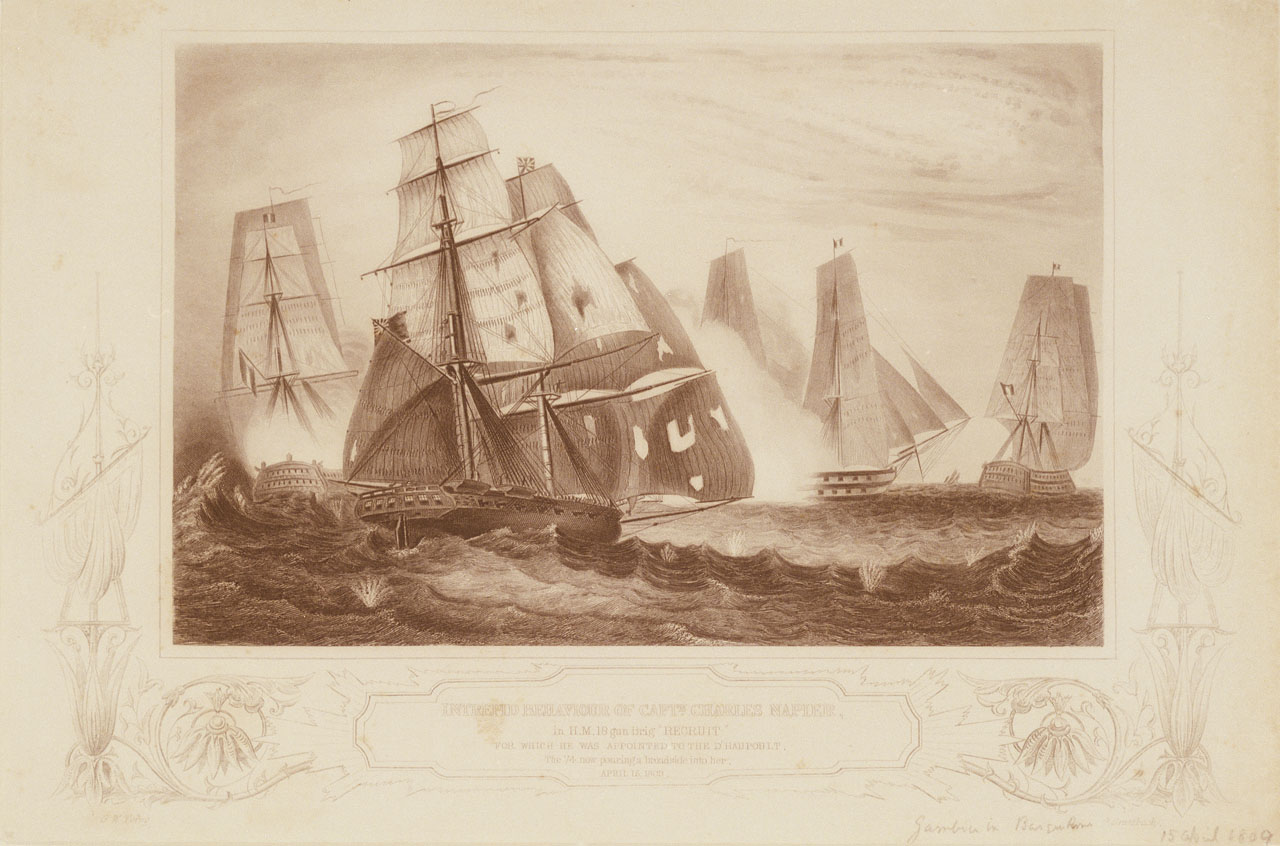117 Courtesies of English Cruizers (1804)

After a tedious time spent in the gulf stream, we at length arrived on the coast of North America and on 1st day morning, the 29th of the 7th Month [1804], we were favored with the sight of Long Island. The next morning about four o’clock, 7th Month 30th, I was waked by the report of a great gun which was followed by considerable bustle upon deck. After getting up I understood that a shot had been fired over us by an English frigate called the Boston, which in company with the Leander and Cambrian, men of war, and Driver, sloop of war, was then cruising near us. And as [since] the cannon-ball that was fired over us was an earnest of what we might expect if we did not stop to receive an officer from the frigate, the topsails were immediately backed and we shortened sail that they might have an opportunity of coming to us. A lieutenant and midshipman were sent on board. After spending about half an hour in conversation with us and exchanging intelligence and newspapers, they left the ship. And at parting observed that they believed all our seamen were citizens of the United States and therefore did not wish to examine them. But that they hoped we would not hoist our sails until we had a signal from the frigate, which was complied with.
The different ships of war which I have just mentioned made a very gay appearance, for the weather being fine and clear and but little wind they had most of their sails spread and continued sailing to and fro before Sandyhook, the Never-sink Mountains being in the background. Their object was to watch two French frigates then lying in New York, as the lieutenant of the Boston informed us, and at the same time to examine all American ships in order to discover if there were any of the subjects of Great Britain serving on board, with a view to impress them. It appeared to be an arduous and delicate situation in which the commander of these ships was placed. Having to fulfill the orders of his government on the one hand and being in danger of giving offense to the Americans on the other, it seemed impossible for him to steer clear unless possessed of a very uncommon share of prudence and discretion.
Source: Robert Sutcliff, Travels in some Parts of North America, in the Years 1804, 1805, & 1806 (1812), 70-2. https://archive.org/details/toldcontemporari03hartrich/page/388/mode/2up
